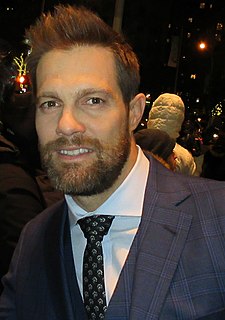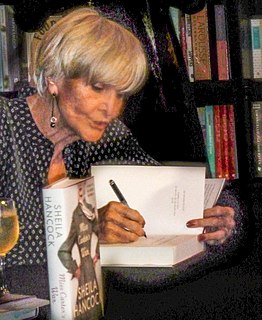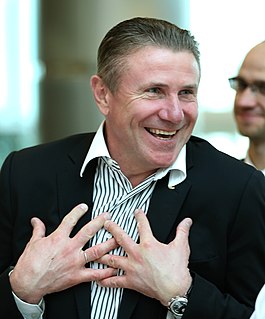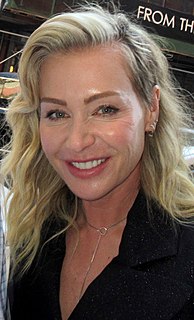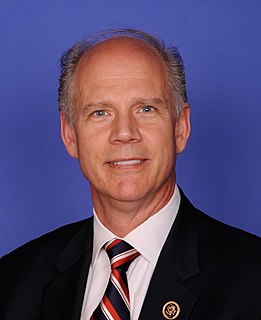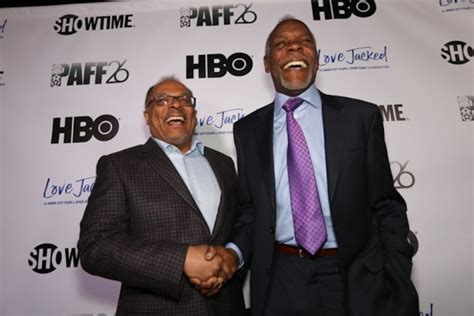A Quote by Agnes Varda
When I started my first film, there were three women directors in France. Their films were OK, but I was different. It's like when you start to jump and you put the pole very high - you have to jump very high. I thought, I have to use cinema as a language.
Related Quotes
I didn't have drama in high school. So when I graduated high school and started at Wayne State in Detroit, I told my parents I was going to major in theater. And they were like, 'OK. Why? You've never done it.' But, it was just what I wanted, and they came to see my very first show and, from then, completely supported me.
I love the pole vault because it is a professor's sport. One must not only run and jump, but one must think. Which pole to use, which height to jump, which strategy to use. I love it because the results are immediate and the strongest is the winner. Everyone knows it. In everyday life that is difficult to prove.
Different directors have different techniques in the use of films. Cronenberg is very different in the way he works with film, and how he takes the audience into his films is different than how Peter Jackson would do that or Jon Stewart. So, if you go between those artists, you shift gears and you kind of fall into the working method of that film.
Me and my friends in high school were the only girls who went to hardcore shows. It was three of us, and the rest of the audience was male. We didn't really think about it. We weren't thinking we were alienated or whatever, but eventually, as there started to be violence in the scene we were in during high school, we started to be turned off by the violence.
The experimental film scene was very much misogynistic as well. I don't know if you have read what little attention was given to the films of Joyce Wieland, who was the wife of Michael Snow. Michael was the "genius" and she was not. If you look at the films they're wonderful, but very different. Michael was very proud of the films too, so it was not coming from him. It was coming from the general environment. I think both Chantal Akerman and I shared that. We wanted to find a language, which was the language of women.
In Canada, we have a very good structure of supporting film through a number of government-sponsored initiatives, such as the tax credit and other grants. The northern part of Ontario has started its own funding. They were really happy to sponsor us, so they've been very supportive and put up half the budget for this film. They'd like us to come back and do more films.
People in Israel would write in a high register, they wouldn't write colloquial speech. I do a special take on colloquial speech. When I started writing, I thought [the language] was telling the story of this country: old people in a young nation, very religious, very conservative, very tight-assed, but also very anarchistic, very open-minded. It's all in the language, and that's one thing that doesn't translate.
What happens when you speak colloquial Hebrew is you switch between registers all the time. So in a typical sentence, three words are biblical, one word is Russian, and one word is Yiddish. This kind of connection between very high language and very low language is very natural, people use it all the time.



